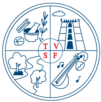Recent experiments affirm that music can be a ‘psychological tonic’ for those deprived of normal life. In Indian cities and towns, we have children and adolescents growing in slums and barns, deprived of a normal living, assured through the Constitution of India even today!
Many are not aware that it is these underprivileged children who happen to turn out to be militants, dons, extremists, ruffians and law-breakers in no time so as to compete with their adverse conditions: hunger, poverty, backwardness, unemployment, and last but not least, a kind glance or a compassionate gesture from their fellow-citizens, who have somehow managed to lead a decent and comfortable living.
Having recognised the problems they pose to society, two music therapists from South Africa established a community clinic in 2002 to use “active music making” as a means to overcome their long-suppressed expression and to make them look up and be confident as any other normal citizen who is born in a family or set-up where opportunities are galore.
The therapists had selected a suburb called Heideveld (pronounced as HAY-DE-FELT), near Cape Town, which was created as a camp for the historically disadvantaged people of the country. It is in this community that the children grow up amidst social illness: gang violence, unemployment, substance abuse, dysfunctional family life and above all poverty.
When they are hardly twelve, some children even become gang leaders, which give them a sense of identity, which otherwise they lack. It is unfortunate that such tender children, living in such environs, of a socially fragmented community have to get their emotional support from gangs! It is equally unfortunate that many of these children have undergone trauma caused by such factors in their tender age.
Modern psychologists are aware that as these `unfortunate’ children undergo such trauma, they invariably show some of the following symptoms: fear, numbing, restlessness, irritability, lack of energy, lack of interest, disrupted patterns in eating and sleeping, problems in being attentive or concentrated upon a task and several socially unacceptable behavior traits, which include loss of self-esteem, inability to trust anybody else and to top it all – self-destructive tendencies.
Like in any other developing country, there has been very little support for these children from organised institutions. It was here that the two music therapists’ endeavours became laudable! Music Therapy Environs in Heideveld.
Music therapy volunteers of the Community Clinic are invited by the community to offer music therapy sessions to children, especially when any of the following incidences take place: death of a family member (often due to HIV/Aids or the frequent gang wars), violent incidences such as riots, shoot out as may be personally involved/ witnessed by these children in more recent times, physical or sexual abuse, and facing emotional trauma due to absentee parents (the latter being in jail etc).
The main idea for trying music therapy is to relieve them as much as possible from their never- ending trauma. Musical activities such as group singing, solo singing, story-telling with music, song writing, musical movement, improvisation and simple drumming powerful music have been found working in a favourable way as they occupy the attention in a pleasant and constructive manner.
As the aim is to assist children in not only dealing with emotionally disturbing issues but also to transcend them, they are given a ‘musical opportunity’ to relate with others through musical, dialogues and expressions — which are pleasant and positive. What is important here is that every child is encouraged and motivated to express his intense emotions musically and rhythmically — sometimes with drums and trumpets.
Music Therapy Sessions for the HIV/AIDS victims:
The goal here is to uplift and strengthen the social and emotional development in children who are kept in quarantine – having been separated from their family members.
Through music the required psycho-social support is administered to them. It is interesting to note that the impact of music is felt much more by those who are powerless and marginalised than those who are well-heeled and well-placed in life.
Similarly, in place of any verbal therapy (say, “lip sympathy”) music works much better as it touches the inner core (“heart”) of the listeners, singers and players.
Thus, such musical interactions have been found useful not only by the children but also by their care-takers.
The Indian counterpart, Nada Centre for Music Therapy had undertaken similar research a few year back with mentally retarded children of Visakhapatnam.
The researchers here noticed that it is those caregivers who have to be given music therapy first, before attempting on such children!!
It is necessary that individual philanthropists and institutions, including the Government, have to come forward to provide the necessary emotional support to such unfortunate children ‘of our country, who are deprived of their basic needs — food for the body and love for their soul!
It may be easier to arrange for food with money than love. But love in real life is something mystic, evasive or intangible! It is heartening however, to find that music can very much act as lovey dovey feelings as and when one feels loveless and marginalised!
All we have to do is to concentrate on its emotional nuances.
Nada Centre for Music Therapy, (the pioneering voluntary group in India which has been propagating the importance of music therapy, not only for the underprivileged, but for premature infants, special children, teenagers, school children) will volunteer to assist in prescribing the. ‘appropriate music’ and session schedule for such children.
This article was published in Bhavan’s Journal March 15, 2011 – Pages 89 to 92
This article was published in Bhavan’s Journal September , 2014 – Pages 41 to 45
Edited by Geeta Shreedar, August 12, 2021
